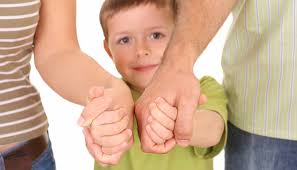I constantly strive to develop and acquire new knowledge, my experience and additional education confirm this.
Guardianship of a child is a process by which an adult who meets the established criteria is authorized to provide care, upbringing and protection of the rights and interests of the child in accordance with the law.4
Divorced children can be placed in custody in a variety of situations, including when one parent cannot or cannot be responsible for the child due to physical, psychological or other circumstances.
Custody and guardianship can be established over children in a variety of situations. The most common of them are:
1. A child who has lost a parent or guardian: This may be due to death, divorce, or other circumstances where a child is left without parental care.
2. A child in danger: If a child is in a harmful or dangerous environment, public authorities or social services can establish a guardianship to protect the child.
3. Child with Disabilities: Children with special needs or disabilities may require care and attention to ensure their well-being and safety.
4. A child who needs support due to difficult circumstances: For example, if the child's parents are in prison, have health problems or are unable to work, the child may need care and attention from other adults.
Custody and care for a child is usually established through a court process or with the help of government agencies or social services.
Guardianship and guardianship can be established over orphans or children who are deprived of parental care.
1.Guardianship is established over a child who has not reached the age of 14. This means that if a child has lost its parents or guardians or is in danger and needs full custody, it can be placed under guardianship.
2. Guardianship is established over a child between the ages of 14 and 18. This means that children in this age range can be assigned guardians to look after their welfare and help with matters relating to their lives and well-being.
Guardianship and guardianship may be established by the guardianship and guardianship body, as well as by the court, in accordance with the legislation of Ukraine, which regulates these issues.
In the case of appointing guardians or custodians of a child, it is very important to take into account the child's own opinion, personal qualities and the potential guardian's or custodian's ability to raise a child.
Consent of the child: If the child has reached the age where his opinion can be taken into account (this is usually the case with teenagers), his consent to the selection of a guardian or conservator is of great importance. This allows the child to feel in control of his own life and to participate more actively in the process of assigning guardianship or care.
Personal qualities and ability to educate: The guardianship body must take into account not only the formal criteria, but also the personal qualities of the candidate for the role of guardian or custodian. This includes his honesty, responsibility, ability to emotionally connect with the child and other aspects that can affect the child's well-being.
Exception: Certain individuals cannot be a guardian or custodian of a child under the law.These may be persons who are specified in the relevant articles of the law and are unsuitable or undesirable for this role.
In cases where a child permanently resides in a health care institution, an educational or other children's institution, the functions of a guardian and custodian in relation to him may be entrusted to the administration of these institutions. This may include, for example:
Health care facilities: If a child is permanently in a hospital or other health care facility due to a health condition, the administration of that facility may act as guardian or custodian. They will be responsible for ensuring the child's medical care and general well-being.
Orphanages: In the event that a child lives in an orphanage or other social service institution, the administration of this institution can act as a guardian or custodian. They will provide the child not only with accommodation and basic needs, but also with social support and development.
Other children's institutions: This may also refer to educational institutions where children live in boarding schools or other settings where the administration of the institution takes responsibility for the child during his stay in the institution.
Control of the conditions of maintenance, upbringing and education: The body of guardianship and guardianship exercises control over the conditions in which the child is located, including the conditions of residence, education and upbringing.
Notification of the child's property: In the event that guardianship or guardianship is established over a child who has the right to immovable property, the body of guardianship and guardianship shall notify the body that carries out the state registration of rights to immovable property about such property.
Permission for transactions regarding the child's property: Legal representatives of a child who is under guardianship or guardianship may not perform transactions regarding immovable property without the permission of the body of guardianship and guardianship.
Issuance of permission: The permission to carry out transactions regarding the child's property is granted by the body of guardianship and guardianship after an inspection, which is carried out within one month from the moment of applying for permission.
Refusal to grant permission: The guardianship authority may refuse to grant permission to carry out transactions related to the child's property in cases provided for by law.
These measures are aimed at protecting the interests and well-being of the child, ensuring his rights and ensuring the stability of his life in difficult situations.
































